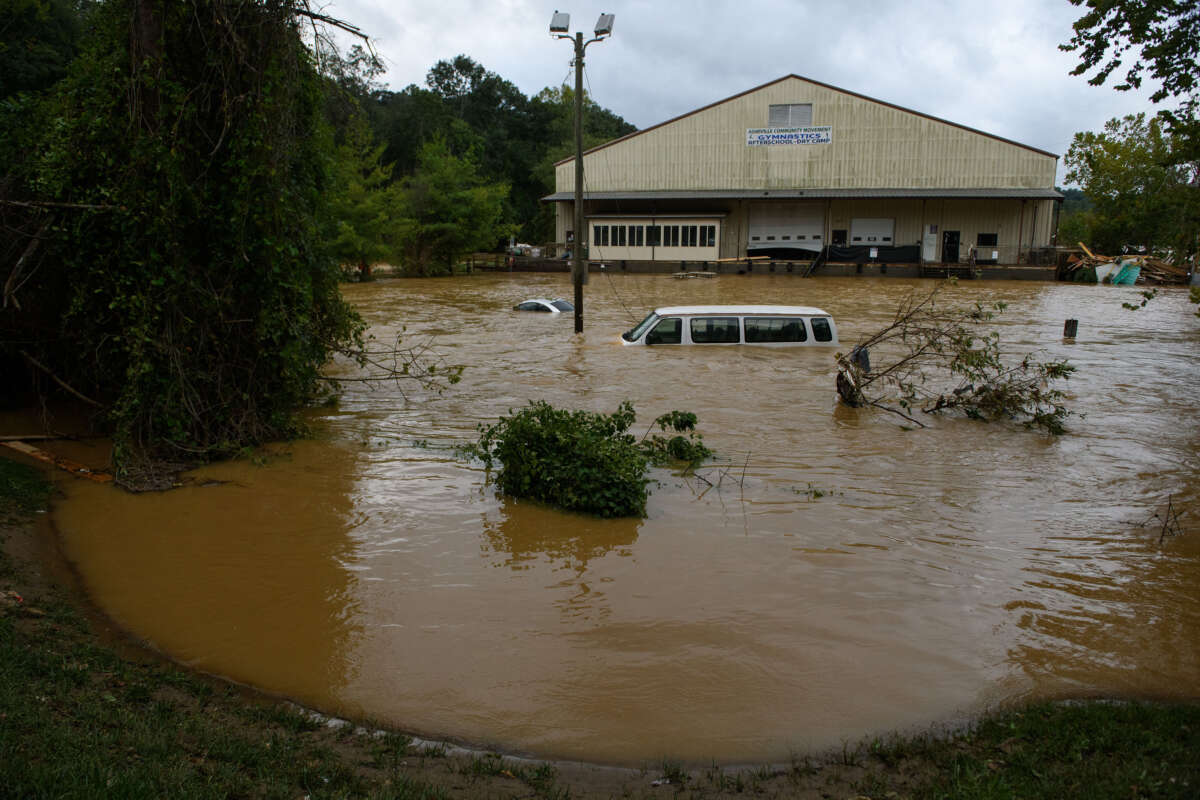Insure Our Future, a coalition of environmental, consumer protection and other grassroots groups, issued its annual scorecard report this week, detailing how the climate crisis has accounted for over a third of weather insurance loss claims across the globe since the start of the century.
Such weather-related disasters with direct ties to the climate crisis amounted to over $600 billion in economic losses, the report found — a figure that’s greater than the gross domestic product of Sweden.
The report also highlighted how the pace of economic loss is accelerating as the climate crisis remains unaddressed. Over the past decade, Insure Our Future said it had observed an increase in climate-related losses, rising from 31 percent to 38 percent of all weather-related losses.
“The evidence is undeniable — climate change represents an existential risk for the insurance industry,” former California insurance commissioner Dave Jones and senior actuary Louise Pryor wrote in the forward of the report.
The insurance industry has historically helped make societies more resilient. Now it must embrace its power and accelerate the transition to clean energy, stop underwriting new fossil fuel projects, and rapidly align with credible 1.5°C transition pathways.
The report provides recommendations relating to the insurance agency for policymakers and regulators to heed if they want the trend of climate crisis-related losses to lessen in the future. The proposals include:
- Requiring insurance companies to develop scenario analysis to account for climate-related events and tipping points;
- Oversee insurance companies’ management of climate risks, including fossil fuel underwriting;
- Implementing policies in support of “just allocation of climate risks and costs to protect communities;”
- And requiring insurers to implement other 1.5°C-aligned transition plans.
When it comes specifically to the insurance industry, climate change-related weather disasters have led to what some media have described as a “crisis” for both insurers and people seeking insurance in areas prone to such extreme weather events. Writing in September for Truthout about said crisis, Derek Seidman said that insurance companies themselves were largely to blame for their own misfortunes, given their underwriting for fossil fuel companies that helped to promote the continued use of those energy sources instead of renewables.
“For the insurance industry, this is largely a self-induced crisis because of its massive, decadeslong underwriting of — and investment in — the very fossil fuel operations that are driving climate change-induced extreme weather events,” Seidman wrote.
Citing data from Insure Our Future and other sources, Seidman further noted in his report that the insurance industry “is a major culprit — not a hapless victim — of the extreme weather that is now endangering its own business model and creating personal catastrophes for ordinary homeowners.”
Seidman’s report for Truthout was published just after Hurricane Helene ravaged the southeastern U.S. Many climate experts believe the climate crisis made the storm much stronger than it would have otherwise been, resulting in over 230 deaths across multiple states.
According to World Weather Attribution (WWA), which measures how much more likely individual weather disasters were made due to the climate crisis, “the rainfall totals over the 2-day and 3-day maxima [in Helene] were made about 40 percent and 70 percent more likely by climate change, respectively.”
That organization reported that the climate crisis was also responsible for an increase of about 150 percent in windspeeds, and that high ocean surface temperatures — a key factor in the strength of any hurricane — were made “200-500 times more likely due to the burning of fossil fuels.”
“These findings show that climate change is enhancing conditions conducive to the most powerful hurricanes like Helene, with more intense rainfall totals and wind speeds,” WWA concluded.
We’re not backing down in the face of Trump’s threats.
As Donald Trump is inaugurated a second time, independent media organizations are faced with urgent mandates: Tell the truth more loudly than ever before. Do that work even as our standard modes of distribution (such as social media platforms) are being manipulated and curtailed by forces of fascist repression and ruthless capitalism. Do that work even as journalism and journalists face targeted attacks, including from the government itself. And do that work in community, never forgetting that we’re not shouting into a faceless void – we’re reaching out to real people amid a life-threatening political climate.
Our task is formidable, and it requires us to ground ourselves in our principles, remind ourselves of our utility, dig in and commit.
As a dizzying number of corporate news organizations – either through need or greed – rush to implement new ways to further monetize their content, and others acquiesce to Trump’s wishes, now is a time for movement media-makers to double down on community-first models.
At Truthout, we are reaffirming our commitments on this front: We won’t run ads or have a paywall because we believe that everyone should have access to information, and that access should exist without barriers and free of distractions from craven corporate interests. We recognize the implications for democracy when information-seekers click a link only to find the article trapped behind a paywall or buried on a page with dozens of invasive ads. The laws of capitalism dictate an unending increase in monetization, and much of the media simply follows those laws. Truthout and many of our peers are dedicating ourselves to following other paths – a commitment which feels vital in a moment when corporations are evermore overtly embedded in government.
Over 80 percent of Truthout‘s funding comes from small individual donations from our community of readers, and the remaining 20 percent comes from a handful of social justice-oriented foundations. Over a third of our total budget is supported by recurring monthly donors, many of whom give because they want to help us keep Truthout barrier-free for everyone.
You can help by giving today. Whether you can make a small monthly donation or a larger gift, Truthout only works with your support.
